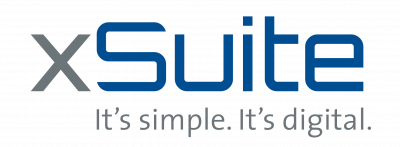xSuite Group GmbH
- Manufacturer
- Germany
- Send product inquiry
xSuite Group GmbH
- Manufacturer
- Germany
- Send product inquiry
- Integration with SAP S/4HANA
- Integration with SAP S/4HANA Cloud
- Powered by SAP NetWeaver
- Integration with Cloud Solutions
- Integration with RISE with SAP S/4HANA Cloud

xSuite Group GmbH
- Manufacturer
- Germany
- Send product inquiry
- Integration with SAP S/4HANA
- Integration with SAP S/4HANA Cloud
- Powered by SAP NetWeaver
Digitale Archivierung (xSuite Archive) by xSuite Group GmbH
One archive — so many options:
Our archive is a long-term storage location for all kinds of information — e-mails, incoming invoices, documents generated in an ERP system, the list goes on. And technically, we have built a foundation which will truly support you in all archiving projects. In the case of mass archiving of documents, we offer you schema-free storage, via scan, for instance. Indexing does not need to be performed with it. Our archive creates a full-text index and any key word will pull up the document you are searching for. You can drill down to your results dynamically.
Another aid in archiving your content is the automatic document typification and validation.
For each document class, you can define certain fields as mandatory. The archive automatically checks whether the mandatory fields are filled. If results are positive, the document will be archived. If not — say, a mandatory date field is not filled — then the user will be notified that post-processing is required.
Performant architecture for real-time archiving:
For the storage of administrative data, we have chosen mongoDB, a database specifically geared to these purposes. The index data belonging to a document — text and field values, for instance— is stored in the dedicated Elasticsearch database to enable full-text search.
Together, these two highly specialized products provide the foundation for a high-performance archive that meets the highest standards and can be scaled to any need. The communication between the databases and the various services is handled by microservices. This modular setup allows us to select the best products on the market, and to connect them with flexible standard interfaces.
Your benefits:
• Audit-proof archiving of documents
• High-speed searches
• Document display for different file formats
• Indexing of full text, fields and attachments
• Automatic indexing in the archiving step
• Tenant-capable
• Top flexibility through schema-free document storage
